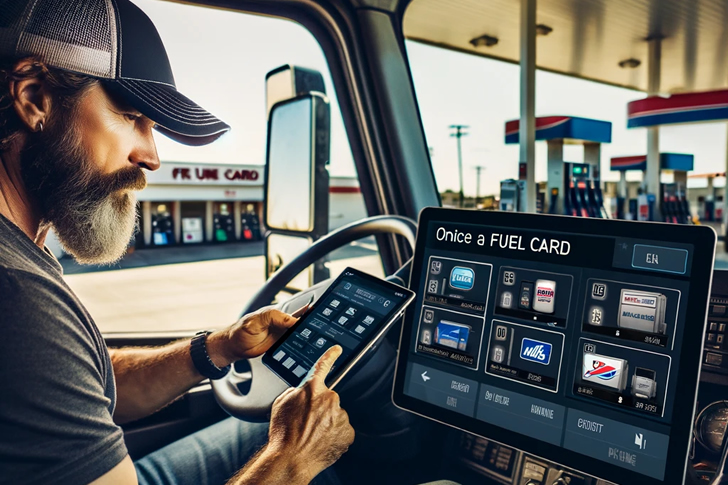Truckers: How to Get Cheap Fuel Cards in the USA
For truckers, fuel cards offer a convenient and cost-effective solution by providing discounts, easy tracking, and management of fuel expenses to maintaining profitability. This comprehensive guide explores how truckers can secure cheap fuel cards in the USA.

Understanding Fuel Cards
Fuel cards, also known as fleet cards, are designed to allow drivers to purchase fuel at a lower price. They work by negotiating discounts with fuel stations across the country and provide additional benefits such as detailed reporting features that help manage and track fuel expenditures.
Benefits of Using Fuel Cards
- Cost Savings: Discounts on fuel prices and the ability to avoid out-of-route costs by locating the nearest fuel stations.
- Convenience: Streamlined transactions and consolidated invoices simplify the management of fuel expenses.
- Control: Enhanced control over expenditures with limits on purchases and detailed tracking.
- Credit Terms: Some fuel cards offer favorable credit terms that help with cash flow management.
How to Choose the Right Fuel Card
1. Assess Your Routes
Understanding the routes commonly taken is crucial because you’ll want a fuel card that is accepted at stations along those routes. This is particularly important for interstate truckers who need widespread station coverage.
2. Compare Discount Offers
Different cards offer different levels of discounts. It’s crucial to compare these offers to see which one provides the best savings based on your fueling needs.
3. Consider the Fees
Some fuel cards charge monthly or annual fees. Calculate whether the cost savings from the discounts outweigh the fees charged by the card.
4. Check Additional Benefits
Some fuel cards offer additional benefits like discounts on tires, repairs, and accommodations, which could further help reduce operating costs.
Getting Cheap Fuel Cards in Key States
New York
- Network Coverage: Choose a card with extensive coverage in areas like the New York Thruway where fuel stations may be sparse.
- Local Discounts: Look for cards that offer additional discounts at local chains like Stewart’s Shops or Fastrac Cafes.
Chicago
- Urban Savings: In urban centers like Chicago, where fuel prices can be higher, a card that offers fixed reductions on fuel prices can be beneficial.
- Regional Chains: Cards affiliated with chains like Casey’s General Stores can provide good coverage and discounts.
California
- Eco-Friendly Options: With California’s focus on sustainability, consider fuel cards that offer incentives for purchasing alternative fuels, which are becoming more common across the state.
- Large Network: Ensure the card is accepted at major chains like Chevron and Shell.
Florida
- Hurricane Season Preparedness: Some fuel cards provide guaranteed fuel availability and priority service, which can be crucial during hurricane season.
- Tourist Areas: Fuel cards that offer discounts on amenities can be advantageous for routes through tourist-heavy areas like Orlando or Miami.
Texas
- Rural Coverage: Given Texas’ large size and rural areas, a card with an extensive network like Pilot Flying J, which has numerous locations across the state, is ideal.
- Oil Price Fluctuations: Some cards offer price protection features that can help when oil prices are volatile, which is often the case in oil-rich Texas.
Conclusion
Fuel cards are an indispensable tool for truckers looking to manage their fuel expenses efficiently. By choosing the right card, truckers can enjoy significant savings, improved expense tracking, and greater control over their spending. In choosing a fuel card, consider the routes commonly driven, the extent of network coverage, the balance of fees against benefits, and additional perks that can enhance savings. Whether driving through the bustling streets of New York City or the expansive highways of Texas, a well-chosen fuel card can make a substantial difference in your operational costs.







Recent Comments